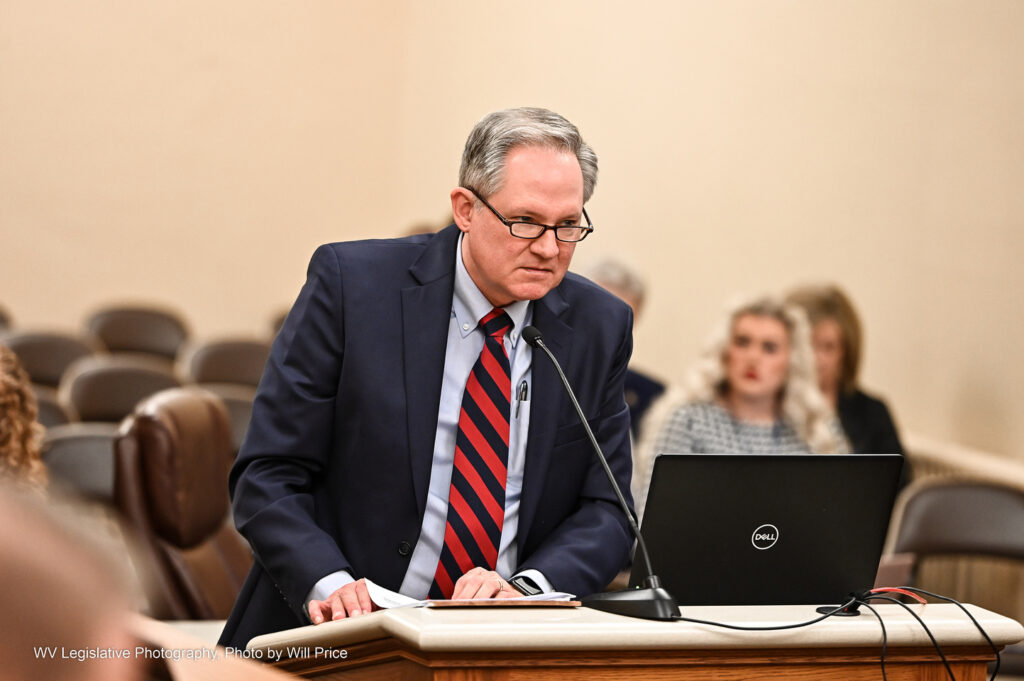The Senate Education Committee took up several bills Tuesday including Senate Bill 619, which would allow teachers in public schools to teach something called intelligent design.
The only definition of intelligent design provided in the bill appears in the enacting clause, simply stating it is “a theory of how the universe and/or humanity came to exist.”
Committee Chair Sen. Amy Grady, R-Mason, said the bill was brought to her by Hayden Hodge, a sophomore at Hurricane High School. Hodge presented in front of the committee, stating the bill is not intended to promote any religious belief but rather allow open, academic discussion.
“That’s what I’m arguing for, teachers could possibly lose their jobs over this when all we’re doing is just offering another idea, another theory. It’s not even teaching this as the answer,” Hodge said. “We’re just saying, allow teachers to just discuss it, talk about it.”
“I’m just stunned that they can’t now just talk about it,” said Sen. David Stover, R-Wyoming, a former teacher. “But even if they can technically, that doesn’t mean they’re not afraid of what might happen.”
Eli Baumwell, the advocacy director with the American Civil Liberties Union of West Virginia, spoke against the bill. He argued that, based on the case Kitzmiller v. Dover Area School District, allowing the teaching of intelligent design would enable violations of the establishment clause, which prohibits governments at any level in the U.S. from establishing or sponsoring religion.
Sen. Vince Deeds, R-Greenbrier, pointed out that Senate Bill 619 would only allow discussion of intelligent design and not require it, as in Kitzmiller v. Dover.
“It’s still held that this is ultimately a religious belief. It is not scientific and is not accepted by the scientific community and in promoting it as such, you’re promoting this religiously,” Baumwell said. “Whether or not we are saying you must teach it, or you may teach it, we are still saying you may violate the students’ rights.”
The bill was ultimately reported to the full Senate by the committee with the recommendation that it do pass.
More Promise
The committee moved on to other matters including Senate Bill 638, which would provide bonuses to school personnel for unused personal days, and Senate Bill 1, which would create the Promise PLUS program.
First established in 2001, the Promise Scholarship is a merit-based academic award that pays in-state tuition and fees, or $5,000, whichever is less, at any eligible institution in West Virginia.
The Promise PLUS program would act as a supplement for individuals who meet more rigorous standards so that the total of both scholarships is equal to the actual cost of tuition.
Different from the original Promise award, the bill would also require a Promise PLUS award to repay a portion of the money if the recipient chooses to reside outside of the state immediately after obtaining their degree.
“The way I’m reading this is it sounds more like it’s a forgivable student loan,” said Sen. Charles Trump, R-Morgan.
“Is that a fair characterization of what you’ve outlined here?” Trump asked Hank Hager, Senate Education counsel.
“Somewhat, but only if you reside outside of the state after graduating from school, then it would be a grant,” Hager said. “If you reside in West Virginia, it would be a grant. If you go outside of the state, then it becomes a loan.”
Senate Bill 1 was also reported to the full Senate by the committee with the recommendation that it do pass.






















